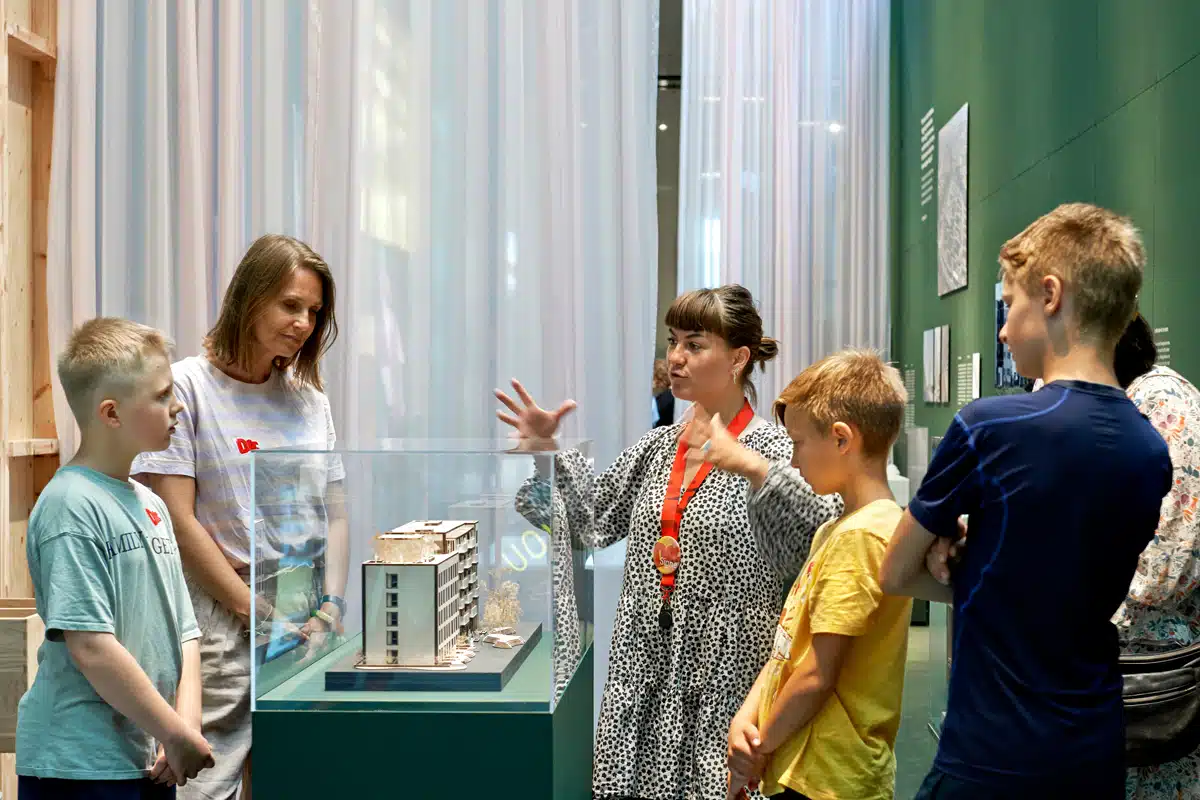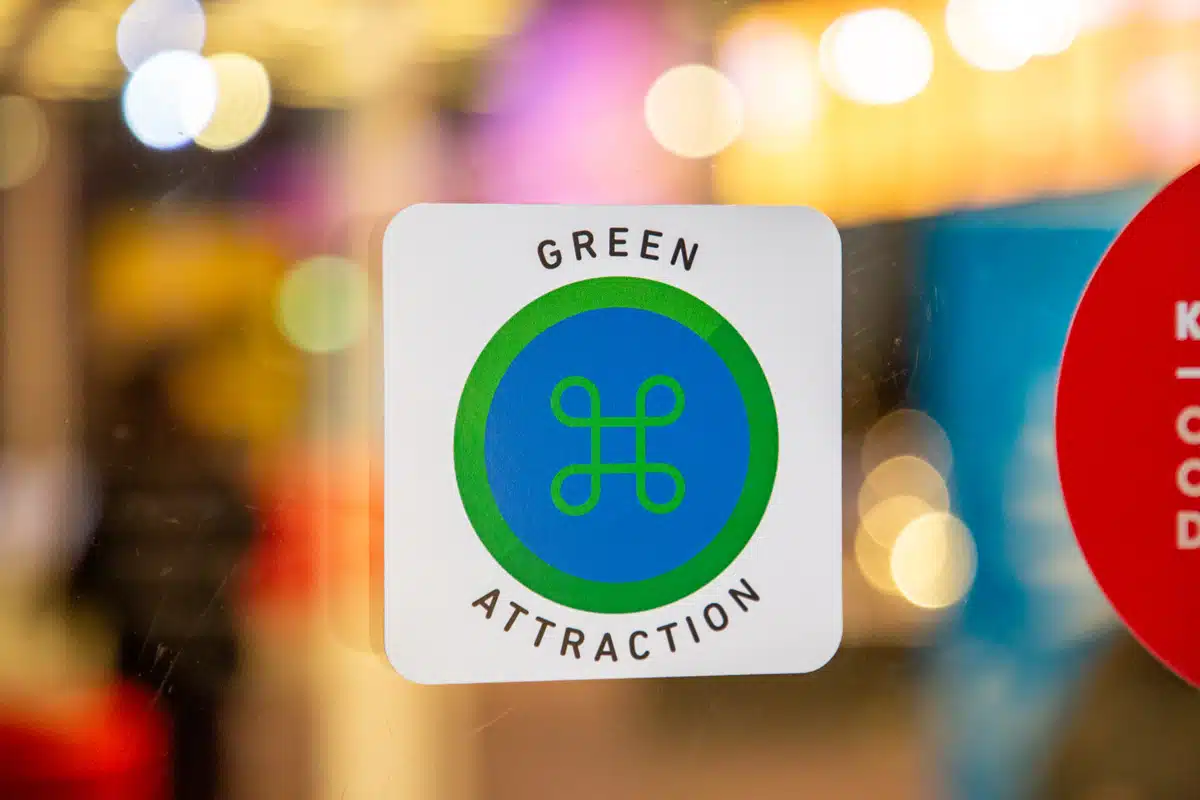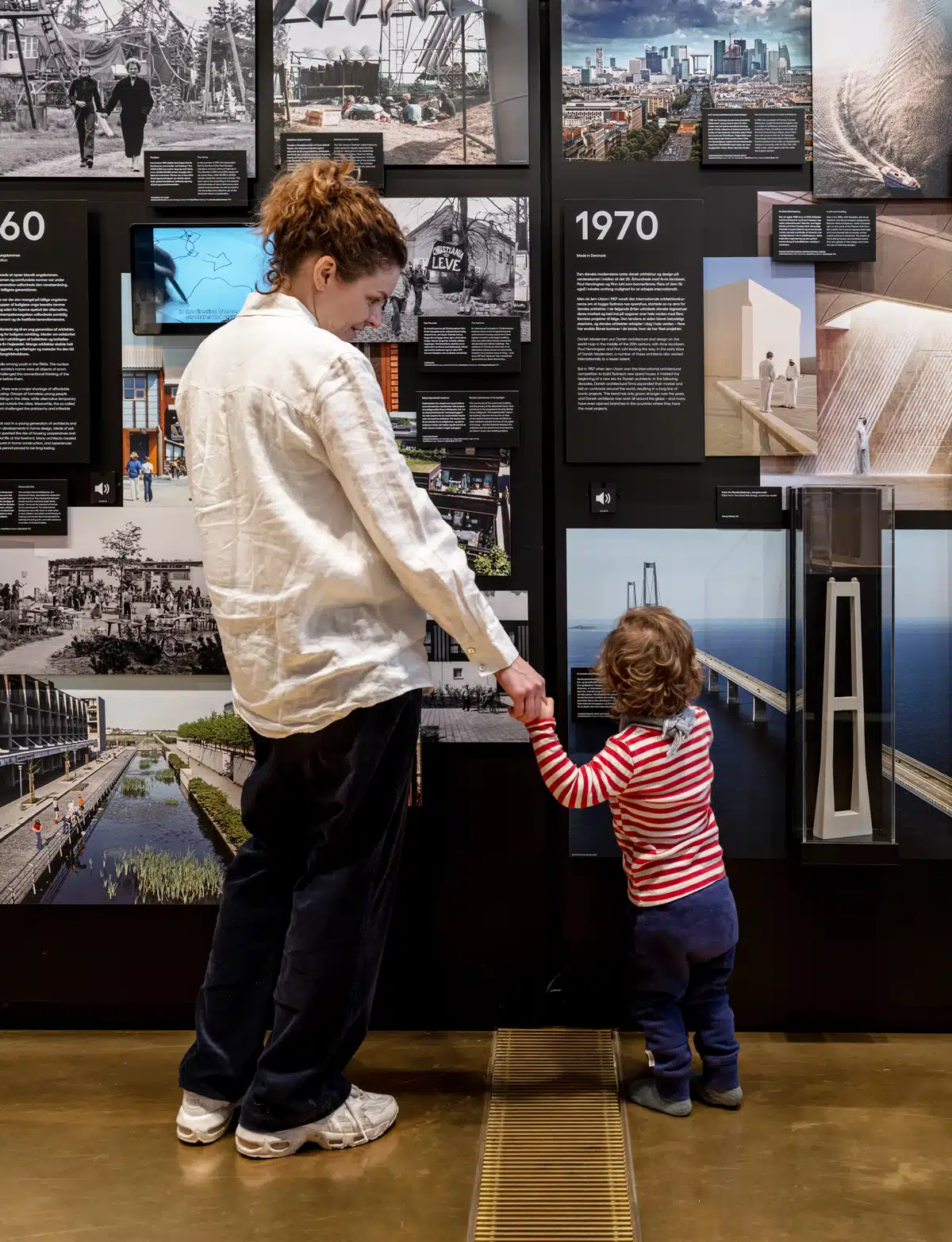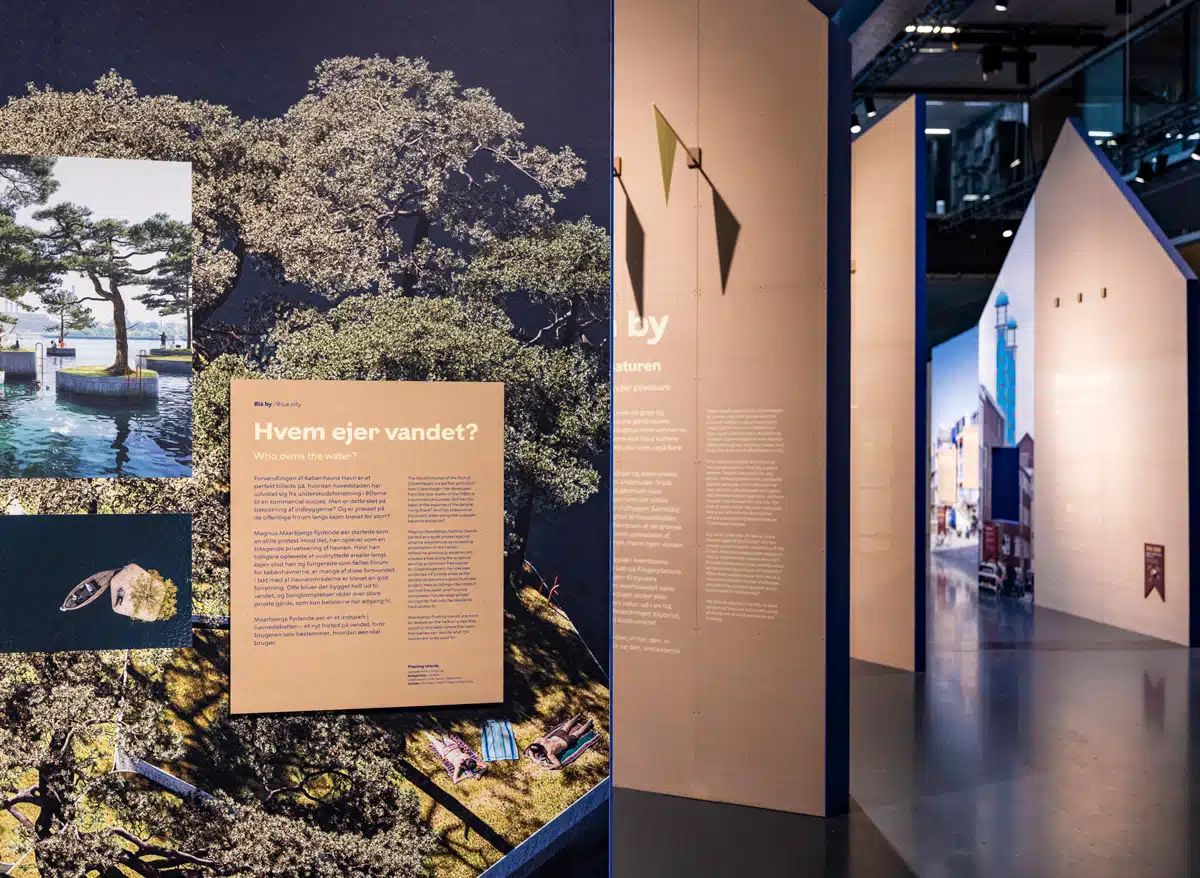Green Attraction

Photo: Hanne Fuglbjerg
At Danish Architecture Center, we are deeply committed to our contribution to the sustainable agenda, and we are constantly working on various initiatives in all aspects of what we do. These extend from our exhibitions and activities, to communication and commercial initiatives.
Certification as a Green Attraction in 2023 is an important milestone for DAC and it supports our engagement in the sustainable transition. Furthermore, it aligns with the UN Global Compact, which DAC has been a part of since 2008. Being a Green Attraction means that the current important transition towards more sustainability is not only part of our history; it is also a crucial part of our identity and our day-to-day operations.
Sustainability at DAC is about environmental, economic and social sustainability and it is incorporated in all our activities. We operate with four overall categories for sustainability.

1. Circularity
DAC wants to promote the circular philosophy and generate as little waste as possible. We aim to reduce our use of newly purchased materials such as paper, wood, metal and plastic, and to reuse, borrow and give onwards, whenever possible, for example in production of new exhibitions and cultural activities. At DAC Café, we have focus on minimizing food waste.
2. Climate footprint
DAC wants to reduce its climate footprint by being aware of our resource consumption, for example energy, water and electricity. The same applies for transport and travel. At DAC Café, we have focus on organic products and local, in-season ingredients.
3. Communication
The main object of DAC is to communicate and facilitate dialogue on architecture and the built environment. A crucial part of this is to spotlight sustainability and the green solutions of the future for both professionals and the general public. We do this through exhibitions, activities and on digital platforms.
4. Social sustainability
DAC is an inclusive attraction in which everyone should feel welcome, regardless of their background, and everyone should have access to an understanding of sustainable development in architecture.
As a workplace, we are a modern enterprise with employee involvement in management of the organization via a collaboration forum and the members of the board elected by employees.


How we work specifically with sustainability
Communication to professional specialists
Our sector-oriented activities focus on environmental, social and economic sustainability, climate economics, the green transition, as well as inclusion and diversity in the built environment for citizens and decision-makers in the Danish regions and municipalities.
Our continuing training program on strategic urban management (Strategisk Byledelse) strengthens the competences of participants in the development of sustainable towns and cities. Through courses and study trips, decision-makers get a deeper understanding of how to approach an urban development project holistically. This gives rise to increased knowledge-sharing, specific projects and changed practices, so that our cities and municipalities develop in a sustainable direction.
Café and kitchen
In order to reduce food waste in our café and conference activities, we have entered into an agreement with an external partner on collecting food and organic kitchen waste for conversion into biofuels. The volumes of food and waste collected can be monitored online, and this gives us insight into the extent of food waste.
We strive to use as many organic products as possible, and we monitor our consumption of organic and conventional products and the split between the two. We use meat and dairy products with the government animal-welfare label and we prioritize seasonal, local ingredients in menus and conference catering. Menus always include vegetarian choices.
Technical operations
We work actively to reduce waste and, together with the other stakeholders in the BLOX building, we have an agreement on waste separation, collection and weighing. 13 different types of waste, including glass, plastic and paper, are directly reused. In public areas, waste is separated into three categories.
Newly purchased technical equipment is assessed on the basis of its life cycle. This is to ensure that DAC lives up to its own ambitions and requirements to know about how equipment is produced, how long it is expected to last, and how the product can be disposed of.
Our focus on electricity consumption has resulted in regulation of lighting, energy-efficient appliances and measures to ensure that equipment is only switched on when necessary. Our big screens run on green electricity and are switched off outside opening hours. Everything is monitored in monthly reports on waste, as well as electricity and water consumption, and these ensure transparent follow-up on our green initiatives.
The BLOX building in which Danish Architecture Center operates is a modern building built in accordance with the best environmental standards of the time.
Exhibitions and cultural activities
Wherever possible, DAC uses materials in a circular process and ensures that the exhibitions can be dismantled, so that materials can be reused. We strive to reuse exhibition articles and materials, either internally or using external parties. Environment-certified paint is used in production of exhibitions, and elements such as signs, texts and print are reused internally. AV equipment in exhibitions is only switched on during opening hours. We also focus on using locally produced materials to reduce transportation.
We want to create social sustainability and to bring people together in experiences, knowledge and communication on several platforms – both physical and digital. We generate knowledge and solutions with focus on the climate and the environment, as well as insight into the built environment with focus on diversity and inclusion.
Design Shop
DAC Design Shops indkøbsstrategi har fokus på kvalitetsprodukter, der er cirkulære og genanvendelige, og på leverandører, der overholder CSR- og bæredygtighedsstandarder. Vi fokuserer på at undgå plast og fremme de mest klimavenlige emballageløsninger. Via sortimentet ønsker vi også at formidle bæredygtighed til gæsterne.
Communication and marketing
We actively communicate information on sustainability in architecture and the built environment on our own printed and digital media. We also market other activities at DAC, for example through guided city walking tours, MorgenDAC and AfterDAC.
We use certified suppliers to manufacture printed material and host digital media. As the baseline for web accessibility, Danish Architecture Center applies international standards.
Read more
UN Global Compact
Danish Architecture Center signed up to the UN Global Compact in 2008, which is the worlds largest voluntary initiative for CEO commitments to support UN Goals. Read our most recent Communication on Engagement.
Planet Copenhagen
In 2022, Danish Architecture Center signed the Planet Copenhagen joint manifesto, which unites the entire tourism sector around the aim of making Copenhagen the world’s most socially, economically, and environmentally sustainable tourist destination.